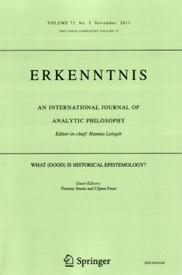The central purpose of epistemology, as traditionally understood, is to identify and justify the epistemic basis of knowledge, including scientific knowledge. While epistemology in this sense is one of the strongest branches of contemporary philosophy, its universalizing approach has been criticized in various ways. In particular, it has been suggested that knowledge is always situated in a context (biological, social, historical, material) and that epistemology cannot afford to ignore the features of this context. In this vein, recent decades have seen the emergence of naturalized, social, or feminist epistemologies. One particular kind of challenge to traditional epistemology has been named “historical epistemology”. Contrary to the other “alternative” epistemologies just mentioned, however, it is not widely known or discussed by contemporary Anglo-American philosophers, but has in recent years been appealed to mostly by historians of science. As it stands, there are various possible conceptions of historical epistemology.

Publication
What (good) is Historical Epistemology?
- Working Group Volume
- Sturm, Thomas Feest, Uljana
- Dept. Rheinberger
